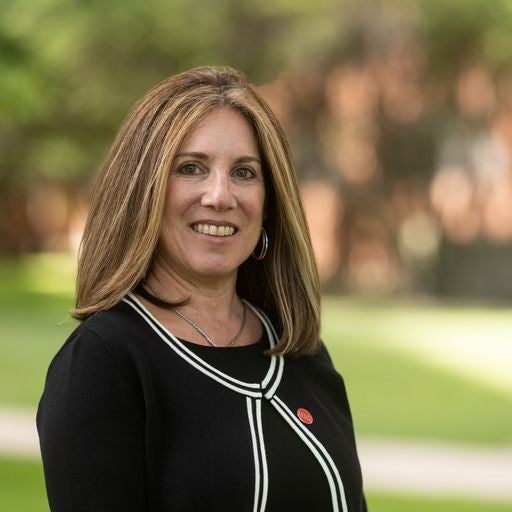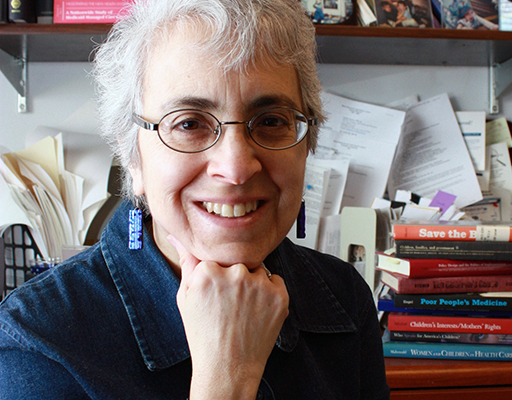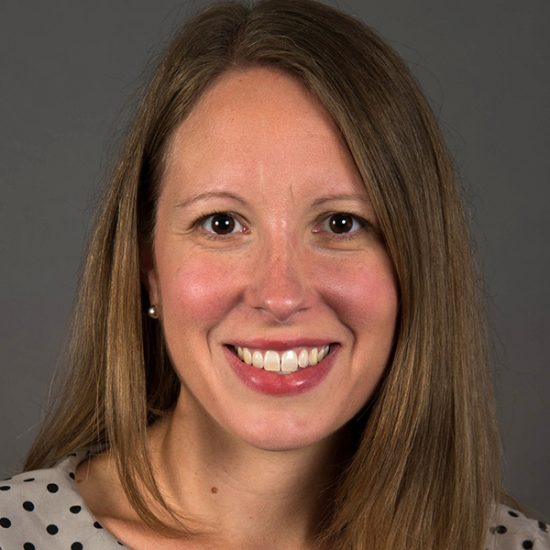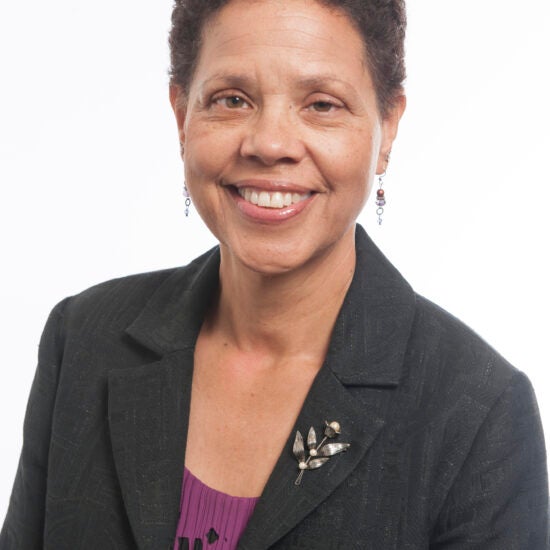Infant, Child & Adolescent Health Experts

Mehdi Amouei Torkmahalleh
Expert on: assessment of children exposure to ultrafine particles in schools and preschools.
Mehdi Amouei Torkmahalleh recently showed that ultrafine particles as small as 3 nm could be formed in preschools because of a variety of indoor activities during school time, such as painting, gluing, candle burning, and cleaning. Furthermore, outdoor particles such as traffic particles can penetrate the schools and add to the exposure level. Ozone can initiate the formation of secondary organic aerosols in schools and preschools if cleaning is conducted in the early afternoon when the ozone level is elevated. Thus, Dr. Torkmahalleh is concerned about children’s brain development at schools and preschools because of the exposure to tiny particles.

Julia Anglen Bauer
Julia Anglen Bauer’s research centers on addressing fundamental gaps in the understanding of how environmental exposures impact the nervous system across the life course in susceptible populations, including mothers and their infants, adolescents, and workers in global and local settings. She aims to identify susceptibility factors that modify the association between chemical exposures and health, including race and ethnicity, exposure timing, co-exposure conditions, and sex differences. Her work includes using environmental mixtures methods, neural networks and novel biomarkers of exposure, such as deciduous “baby” teeth to estimate retrospective elemental exposures.

Susan Buchanan
Expert on: occupational medicine, environmental health, children’s exposures, community engagement, reproductive environmental health.
Susan Buchanan leads the Great Lakes Center for Reproductive and Children’s Environmental Health, one of ten CDC/EPA-funded Pediatric Environmental Health Specialty Units in the US. This center provides expertise on the health effects of exposures to environmental pollutants and contaminants during pregnancy and childhood to communities, healthcare providers, and public health agencies. Recent activities have included leading an ECHO session for healthcare providers on PFAS in drinking water, collaborating with community organizers in Benton Harbor, Michigan around environmental triggers of asthma, and responding to queries about community ethylene oxide exposure and lead poisoning.

Rebecca Campbell
Expert on: perinatal epidemiology; nutrition; cognitive development; fetal, infant and childhood growth.
Rebecca Campbell is an epidemiologist trained in human nutrition and global health. Her research utilizes observational epidemiologic methods to identify determinants of nutritional status and health during sensitive life stages, with particular focus on fetal, infant and early childhood growth and cognitive development. Her current research investigates iron status as a nutritional pathway linking the maternal social environment to fetal and infant neurocognitive development.

Jamie Chriqui
Expert on: school and student health and wellness, early care and education nutrition and physical activity policy.
Jamie Chriqui has been leading the largest nationwide evaluation of the congressionally-mandated school district wellness policies and studying their implementation and impact on schools and student health and wellness. She also conducts research to study the implementation of changes to the federal Child and Adult Care Food Program (CACFP) meal pattern standards governing early child care centers and to the physical activity standards for Head Start and Early Head Start centers.

David DuBois
Expert on: mentoring, self-esteem, program evaluation.
David DuBois is an expert on mentoring relationships and self-esteem development for school-age children and adolescents as well as the evaluation of programs for these age groups. He studies mentoring and self-esteem promotion interventions that are provided to youth in schools and other parts of the community. His research has shown that these types of programs can promote resilience and holistic positive development, particularly for youth from under-resourced families and communities.

Arden Handler
Expert on: adverse pregnancy outcomes, preterm birth, low birth weight, infant mortality.
Arden Handler’s research focuses on the exploration of factors that increase inequities in adverse pregnancy outcomes and examination of the ways in which the health care delivery system, particularly prenatal care, perinatal care, postpartum care, and preconception/interconception/well-woman health care can ameliorate these inequities. She has conducted a number of evaluation projects focused on reducing racial/ethnic disparities in adverse pregnancy outcomes. She is currently co-I of the evaluation of the UIC Healthy Start Project and is a former member of the US Secretary’s Advisory Committee on Infant Mortality. She is the PI of the Center of Excellence in Maternal and Child Health and teaches several courses focused on reproductive and perinatal health.

Jeni Hebert-Beirne
Jeni Hebert-Beirne is a NIH funded community-based participatory researcher with over two decades of experience in research on female adolescent and women’s pelvic and bladder health. She co-led the qualitative and community-engaged research for the NIDDK-funded national research consortium to explore determinants of female adolescent and women’s pelvic and bladder health. She also co-led a supplemental study in collaboration with Howard Brown Health to explore the bladder health related-experiences of sexual and gender minorities in Chicago. Dr. Hebert-Beirne also works to build the capacity of the public health workforce by co-designing, with practice partners, training experiences for youth as public health leaders and youth and adults as community citizen scientists.

Elizabeth Jarpe-Ratner
Expert on: school health and wellness.
Elizabeth Jarpe-Ratner’s research focuses on K-12 education and adolescent and school-based health to better understand how to adopt and implement policies, including wellness policies and district wide policies related to sexual health education and supporting transgender and gender-expansive students. Her work focuses on understanding the experiences of practitioners in schools (principals, teachers, nurses, social workers, etc.) in order to ensure they are supported in building their skills and capacities to implement policies and programs that ultimately support students’ health and well-being.

Supriya Mehta
HIV remains a global pandemic with 37 million infected. In western Kenya, where much of Supriya Mehta’s research takes place, HIV prevalence in girls rises from 1.3 percent in 13-14 year-olds to 3.3 percent in 16 year-olds, to 12.8 percent by age 18. Globally, an estimated 350 million sexually transmitted infections (STI) occur each year, fueling the HIV epidemic through biological synergism and carrying long term reproductive sequelae for women and girls. Adolescent girls are especially vulnerable to STIs and HIV, due to a confluence of behavioral, biological, developmental and structural factors. Mehta is the principal investigator of a prospective cohort study examining the effects of menstrual cups on the vaginal microbiome and STIs among adolescent girls and factors affecting the trajectory of their vaginal microbiome over time. She serves as specialty co-chief editor to the Adolescent Reproductive Health and Well-Being section of the journal Frontiers in Reproductive Health.

Nadine Peacock
Expert on: safe infant sleep.
Nadine Peacock is a qualitative and mixed-methods researcher with a background in Anthropology who, in collaboration with Dr. Susan Altfeld and others, has conducted research on media campaigns and other public health interventions to promote safe infant sleep. Drs. Peacock and Altfeld have examined the extent to which media campaigns cover the full range of American Academy of Pediatrics (AAP) recommendations, whether the messages are positively or negatively framed, their cultural sensitivity, and the extent to which the campaigns have been evaluated for reach and effectiveness. Drs. Peacock and Altfeld have advocated for the development of harm reduction messaging to support parents in minimizing risk of sleep-related infant deaths.

Yuan Shao
Expert on: indoor air quality, e-cigarette use, healthy homes, school kids, asthma.
Dr. Shao’s research focuses on the measurement and assessment of airborne contaminants. He has been involved in several exposure assessment studies that related to child and adolescent health, including the quantitative assessment of deposition in the human respiratory system of organic compounds from e-cigarettes, indoor air quality monitoring in local schools and environmental justice communities.